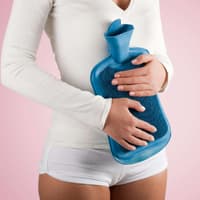
How do you get cystitis?
The most common cause of cystitis is bacteria. These are mainly E. coli bacteria, which occur naturally in the human and animal gastrointestinal tract, where they aid digestion. However, if they find their way into the bladder via the urinary tract, they cause pain and the urge to urinate, making urination a pain. Because the urethra is shorter in women than in men, women are significantly more frequently affected by urinary tract infections. It is only with increasing age, when the male prostate enlarges and voiding problems occur, that men also often complain of cystitis.
Cystitis: Contagious or not?
In principle, cystitis is not considered contagious. However, certain factors increase the risk of becoming infected with the germs. Although other people also come into play, there is no direct risk of infection with cystitis. This is because, unlike flu viruses for example, cystitis is not transmitted by droplet infection.
Instead, poor or incorrect hygiene often plays a major role. This is shown by these four typical causes of cystitis:
- Forgetting to wash your hands
It is logical that coliform bacteria can be found in toilets. However, if people do not wash their hands thoroughly after defecating, they then spread the germs on a wide variety of surfaces: door handles, handles on buses and trains, ATM touchscreens and shopping carts in the supermarket. Anyone who comes into contact with them and does not wash their hands before going to the toilet runs the risk of making it easier for the bacteria to enter the urethra. Especially when inserting tampons, women should wash their hands thoroughly beforehand.
- Incorrect wiping on the toilet
Speaking of going to the toilet: things can also go wrong. The anus and urethra are close together in women. To prevent intestinal bacteria from getting anywhere near the urethra, women in particular should always wipe themselves from front to back.
- High sexual activity
As good as sex is - in many cases it increases the . Frequent sexual intercourse irritates the mucous membranes and allows intestinal bacteria to ascend into the urinary tract. Because cystitis often occurs in young women who are very sexually active, it is also referred to as "honeymoon cystitis".
- Excessive intimate hygiene
Too little hygiene increases the risk of infection - as does too much. If too much soap or washing lotion is used for intimate hygiene, the natural protective function is attacked. This makes it easier for pathogens to attach themselves to the mucous membranes and infect the person concerned with .






